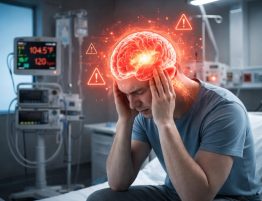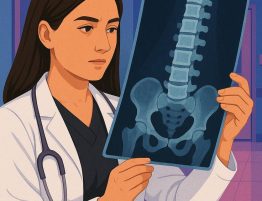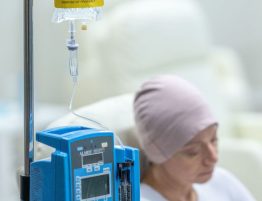
Acute Pancreatitis is a sudden inflammation of the pancreas; it may be mild or life threatening but usually subsides. It is painful and develops quickly.
Acute pancreatitis is different to chronic pancreatitis, where the inflammation of the pancreas persists for many years. Acute pancreatitis may be a single event; it may be recurrent; or it may progress to chronic pancreatitis.
Symptoms
- Upper abdominal pain
- Abdominal pain that radiates to the back
- Rapid pulse
- Abdominal pain that feels worse after eating
- Tenderness when touching the abdomen
- Nausea
- Fever
- Vomiting
Causes
Pancreatitis occurs when digestive enzymes become activated while still in the pancreas, irritating the cells of the pancreas and causing inflammation.
With repeated bouts of acute pancreatitis, damage to the pancreas can occur and lead to chronic pancreatitis. Scar tissue may form in the pancreas, causing loss of function. A poorly functioning pancreas can cause digestion problems and diabetes.
Conditions that lead to pancreatitis include:
- Abdominal surgery
- Alcoholism
- Cystic fibrosis
- Certain medications
- Gallstones
- Infection
- Obesity
- Pancreatic cancer
- Injury to the abdomen
- High triglyceride levels in the blood
- High calcium levels in the blood (hypercalcemia), eich may be caused by an overactive parathyroid gland (hypertriglyceridemia)
* Endoscopic retrograde cholangiopancreatography (ERCP), a procedure used to treat gallstones, also can lead to pancreatitis.
Risk Factors
- Excessive alcohol consumption – heavy alcohol users are at increased rate of pancreatitis
- Obesity
- Family History of Pancreatitis
- Cigarette smoking
Treatments
Initial treatments in the hospital may include:
- Fasting – patient will stop eating for a couple of days in the hospital in order to give the pancreas a chance to recover
- Pain medications – pancreatitis can cause severe pain and the health care team will provide medications to help control the pain
- Intravenous (IV) fluids – as the body devotes energy and fluids to repairing the pancreas, patients may be dehydrated. For this reason, the patient will receive extra fluids through IV
- Surgery – in some cases dead tissue may need to be surgically removed
- Breathing assistance – ventilation equipment will help the patient to breathe
- Treatment in the intensive care unit (ICU) – injections with antibiotics aim to stop any infection from developing in the dead tissue
If you are experiencing persistent abdominal pain seek immediate medical help especially if the abdominal pain is so severe that you are unable to sit still or find a position that makes you comfortable.
What We Offer
We at Almurshidi Medical Tourism will find the best doctors to cater to your needs. We are partnered with a wide network of hospitals and clinics that provide top quality medical experience.
We provide free medical estimates, make medical appointments, and provide several medical opinions if needed at no cost.
Contact Us
For more information contact us at +66822004040 or via WhatsApp








